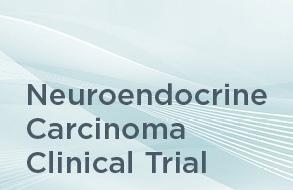
CAR T-cell Clinical Trial Shows Promise, Advances to Next Dose Level
The world’s first clinical trial for CAR T-cell therapy in neuroendocrine tumors has advanced to a higher dose level, an indication of progress. Advancing to

The world’s first clinical trial for CAR T-cell therapy in neuroendocrine tumors has advanced to a higher dose level, an indication of progress. Advancing to

By Anna Greene, PhD, NETRF Director of Research A recent study by Suriya Baskar, MD, and Udhayvir Singh Grewal, MD, published in the Journal of

Perspective Therapeutics has begun enrolling participants into the next phase of its clinical trial of a new targeted alpha radiation therapy for neuroendocrine tumors (NETs).

“Where do you see yourself in five years?” I’ve stopped answering that question. Five years ago I was 31. Five years ago I was planning my wedding. Five

At the Neuroendocrine Tumor Research Foundation (NETRF), we believe that the path to better treatments and cures, starts with research. However, ensuring that we fund

(Boston, MA): The Neuroendocrine Tumor Research Foundation (NETRF) is proud to join Chimeric Therapeutics in announcing that CAR T-cell therapy using CHM CDH17 has been

In a breakthrough for those with advanced pheochromocytoma and paraganglioma (Pheo/Para), the U.S. Food and Drug Administration (FDA) has approved WELIREG® (belzutifan) as a treatment

Patient enrollment has begun at a fourth site for the world’s first CAR T-cell therapy clinical trial for neuroendocrine cancer. Winship Cancer Center at Emory

A new global clinical trial is evaluating the investigational drug FORE8394 (plixorafenib) for treatment of neuroendocrine carcinomas with BRAF V600E-mutations. The phase 2 study aims

Neuroendocrine tumors (NETs) are complex cancers that can originate in various organs, including the ovaries. While primary ovarian NETs (PON) are uncommon, distinguishing them from